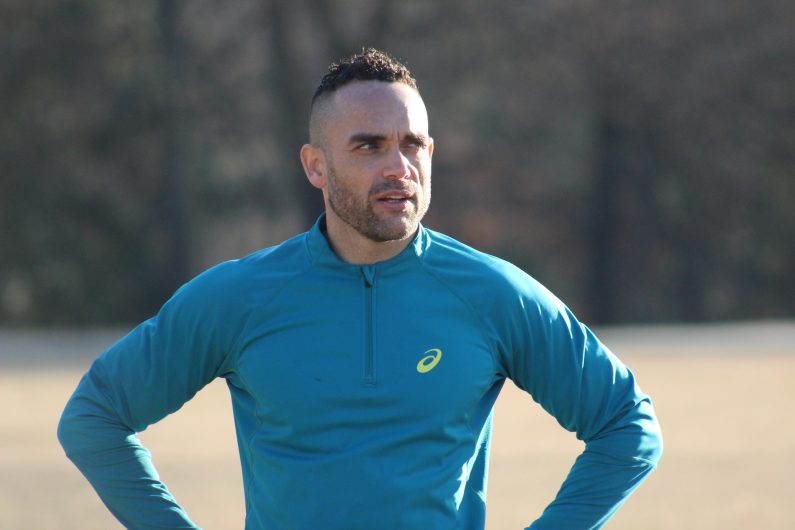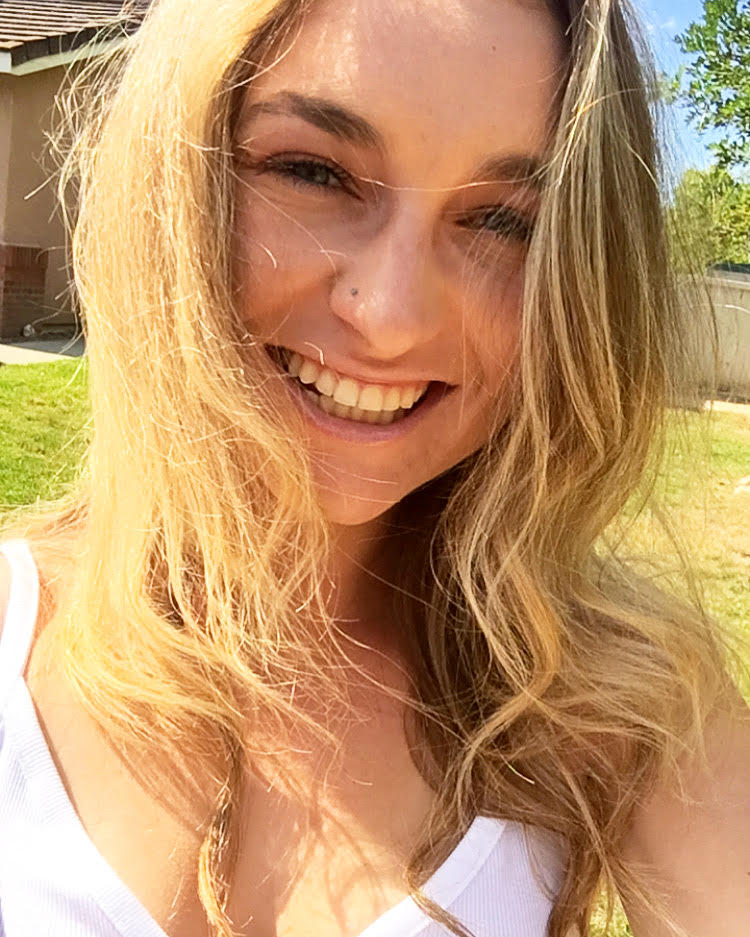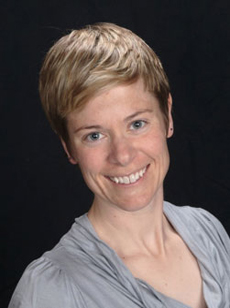 Read More about Missy Wright
Read More about Missy Wright
Missy Wright
Associate Professor, Department of Kinesiology
Co-Director, Center for Sport & Social Justice
Growing up in Canada, I was always involved in sports; playing pick up games of street hockey or baseball with my brother and the neighborhood boys, trying out gymnastics (very short-lived), playing on an indoor lacrosse team, and numerous years of competitive tennis at the national level. In many of these sporting environments, I was aware that I was routinely one of only a few girls, or the only girl, participating. These sporting experiences growing up undoubtedly influenced my interest in learning more about sport environments as gendered spaces, and specifically, the barriers that girls encounter that shape their sport and physical activity participation. I believe we need to ask the questions “What types of spaces are being created and whose space is it – who is in and who is out?” There is such a vast array of benefits that can be attained through being physically active, and I look forward to working with the Center in helping to create change in making physical activity and sport environments more inclusive.
 Read More about Matthew Atencio
Read More about Matthew Atencio
Matthew Atencio
Associate Professor, Department of Kinesiology
Co-Director, Center for Sport & Social Justice
My involvement with the Center for Sport and Social Justice reflects a lifelong engagement with physical activity and sport, in both formal and informal contexts. These experiences as a youth in my neighborhood, as a competitive athlete, and as a traveler for many years have been very meaningful. As an academic, I draw upon this personal perspective to help youths and adults engage with sport and physical activity in beneficial ways. This involves highlighting key barriers that serve to marginalize and exclude people. I also question prevailing ideologies that portray many people simply as "unfit", "unhealthy", and "at risk." From a social justice perspective, I suggest that many people actually take part in physical activity and sport cultures. These cultures reflect spaces that are unique and highly innovative. I hope that CSSJ can frame a dialogue that challenges the reductive and restrictive ways that society views sport and physical activity. Can we be more open to re-envisioning human movement and what "counts" as being healthy and active?
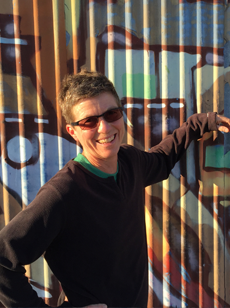 Read More about Becky Beal
Read More about Becky Beal
Becky Beal
Professor, Department of Kinesiology
Creating beauty and joy in our world is a guiding principle for me. I have found physical activity as a primary source to do this. As a young person this joy often took form through exploring my neighborhood and playing informal games with friends. As I moved into formal organized sport, I often felt the beauty of physical activity was diminished by the militaristic and bureaucratic ethos. When I tried to bring humor or lightness to these formal settings, I was often dismissed as “not serious” or “un-coachable.” My orientation toward physical activity has led me to do research on informal sports, such as skateboarding and surfing, as potential democratic and artistic sites; spaces where self-expression, style, and fairness matter.
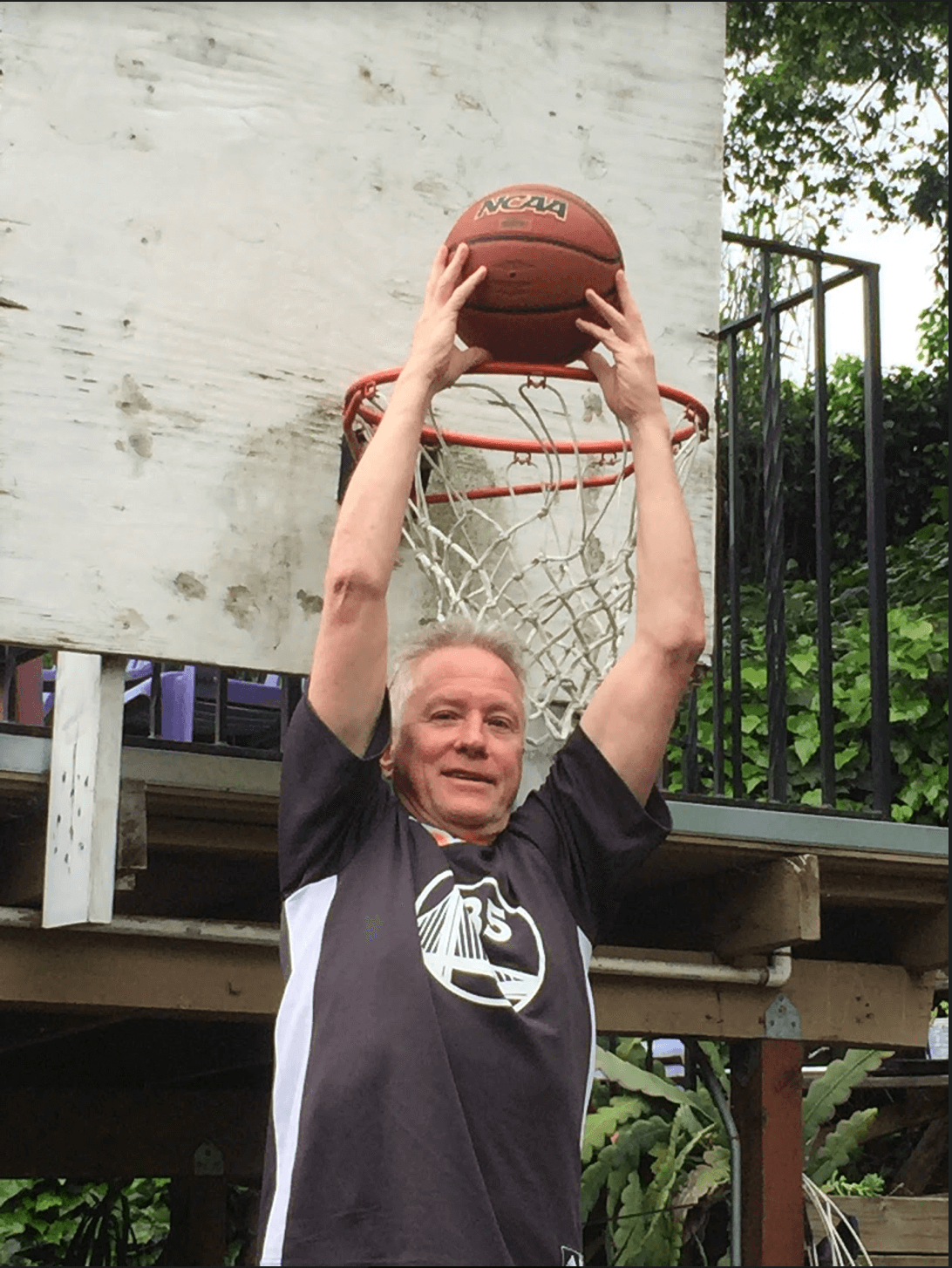 Read More about Carl Stempel
Read More about Carl Stempel
Carl Stempel
Professor, Department of Sociology & Social Services
From 4th grade school through high school, I was always playing an adult-organized sport, sometimes two. Much of my spare time was spent playing sports with neighborhood kids - street football was our favorite. In high school I read books like Dave Meggyesy’s Out of their League and Connie Hawkins’ autobiography Foul. They gave me models of athletes who separated the joy, accomplishment, and cooperative competition of sport from the sometimes misguided goals, ideals, and practices of the people running sport systems. In college I ran track (when I wasn’t injured) and was exposed to more of the underbelly of sport, like steroid use and insecure coaches who treated athletes as disposable. I especially recall the psychic pain of two football players who opened up about how they were shunned after career-ending injuries. Being part of CSSJ has helped me focus on what we can do to expand opportunities for youth of all backgrounds to play sports and be physically active in ways that support their development.
Mike Regan Jr.
Lecturer, Departments of Kinesiology and Sociology & Social Services
Participating in sports and other physical activities has always been part of my life for as long as I can remember. Some of these activities included martial arts, running, rock climbing, and football. My current passion is cross country mountain biking. The power of sport and physical activity has provided me a balance of physical, mental, social, and spiritual well-being. What I have discovered early on was not everyone has the opportunity to participate to reap these benefits. Whether it is on the field or post-participation, barriers such as classism, racism, and sexism, etc. have prevented many folks from getting and staying involved in sport and physical activity. As a lecturer and researcher, I continue illuminating these concerns and fighting to give voice to those who need to be heard.
 Read More about Christina Rodriguez
Read More about Christina Rodriguez
Christina Rodriguez
Student Representative
I am a student representative for the Center for Sport and Social Justice (CSSJ). Through my work with the CSSJ I hope to expand my understanding on social justice issues in both the community and in sports. I also hope to share this knowledge with students at CSUEB. I grew up playing soccer and my involvement has had a major impact on how I view sports. It has played a role in me wanting to learn more about how sports impact my community and society as a whole. Through research I hope to expand my understanding on what social justice challenges sports face and what I can do to help. The CSSJ focuses in on these particular areas by focusing in on what can be done to better sports for all and how impactful sports are.
MaKenna Duda
Student Representative
As a student representative, my desire for inclusivity within a physical activity context becomes reality. Skate Like a Girl and Soccer Without Borders are standout programs within the Bay Area that epitomize what sport is truly about - connection, unity, and expression. I was a former collegiate runner and also a soccer player, so competition has never been something I have shied away from. I now realize the beauty in a team that inspires not only you, but those around you. Sport goes beyond competition - it brings together different minds and cultures to find commonality in character and values. It also instills a lifelong student mentality. The CSSJ has allowed me to strive for inclusivity within a sport and workspace as I look towards graduation and what is beyond.
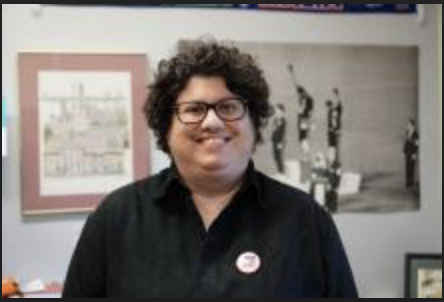 Read More about Maria J. Veri
Read More about Maria J. Veri
Maria J. Veri
Associate Professor, Department of Kinesiology San Francisco State University
As a kid, school and sports were salvation for me. I grew up playing a number of different sports in neighborhood backyards and driveways – as well as organized sports at school and in the community – and thanks to the influence of my dad, was an avid fan of the New York Yankees. Sports were fun and gave me a way to interact with peers and adults in my community, helped me become known by teachers, and buoyed my confidence personally and socially. It was in high school when I first became aware of systemic gender-based discrimination in sport. I was upset about the inferior conditions and lack of resources for the girls’ sports teams. As a three-sport athlete and reporter for the school newspaper, I notified the athletic director of my intent to publish a story about those inequities during my senior year. He asked me to hold off, promising that changes would be made, and then offered me a softball equipment catalogue so I could pick out new catcher’s gear. When I returned to visit after my freshman year of college, I ran into the athletic director at a girls’ basketball game and he made it a point to tell me about the improvements that had been made to the girls’ softball field. That early experience influenced my work as an academic and kinesiology educator. I strive to call attention to race, gender, and power dynamics when I teach and write about the culture of sport. My goal for my students is to ensure that sport becomes a more inclusive, socially just cultural space. I’m thrilled to be working with an organization that so closely aligns with those values and is committed to creating and maintaining social justice-oriented community sport
spaces.
